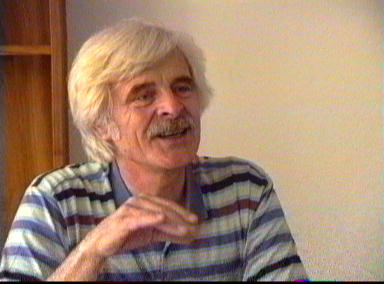
Ulrich Duchrow (Kairos Europa), main inspirator of the European Ecumenical Coalition, reflects on the changes since Basel:
In the First European Ecumenical Assembly in Basel, 1989, the delegates were meeting among themselves, while the groups and initiatives, people concerned about the problems would just have a playing ground in a market. But now, as we had organized ourselves through Kairos Europa in the European Ecumenical Coalition for Graz, with all the initiatives and all the groups effected by the situation, we could, in two years preparation, work out a structure together with the official Assembly, which would include meeting places between delegates and people from the grassroots. I find this a considerable improvement within the ecumenical movement, within the Conciliar Process of Justice, Peace and Integrity of Creation, that we now have this chance of interacting.
As we hope, the Graz Assembly will again give us a framework, for seven years as proposed, to work together on truth, reconciliation and justice in Europe and in our own situation.
There is one problem that we are facing. Church assemblies like to formulate things in general, and we are very interested to be concrete. Because it is the concrete people and the needs of the concrete people and nature that we are concerned with. As we work on proposals, we are particularly concerned about the fact, that this economic system, which we now globally have and which is sustained by Western-Europe be very concretely rejected. A key point is to regain control on transnational capital, which at the moment is really destructing the social order and nature. This is what we for Kairos Europa want to put into the center of the qustions, because this applies to justice issues, peace issues and questions of creation as well.
Our proposals include the churches' changing their own behaviour as economic subjects: with a new practice of sharing of work and income whithin themselves, they could give a good example among the peoples of Europe. The second thing would be to change their attitude to money. Instead of placed in normal banks, money should be used in terms of alternative banking, that not always more of the proportion of the economic gain goes to those who own the capital and money asset, but that we also share in the income from the common economy. And that only can be done if we do alternative banking.
